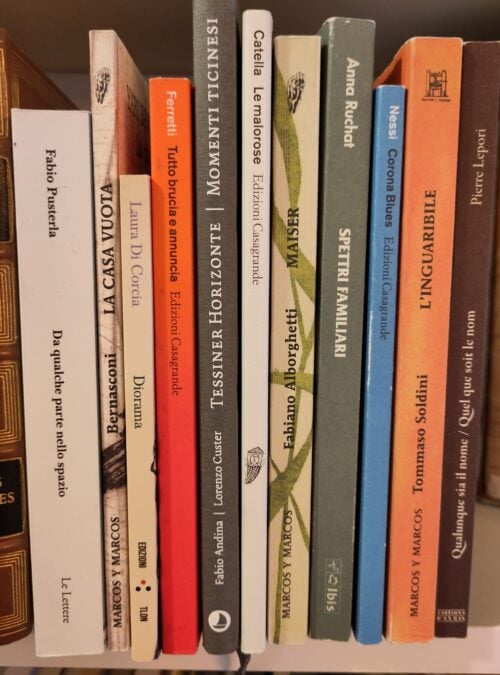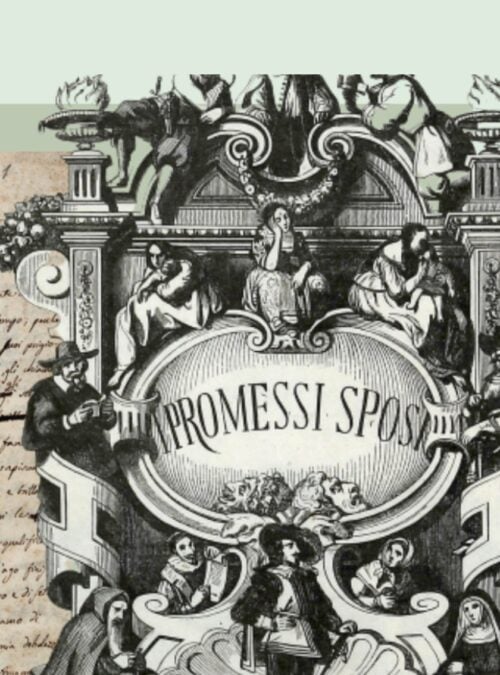Why an Italian Riveter?
Author: Rosie Goldsmith, Riveter-in-Chief

Italian literature is enjoying ‘a moment’, to echo the words of Jhumpa Lahiri, the Italophile author, translator and academic, in an exclusive interview for this magazine. There are several more exclusives in this, our tenth Riveter magazine, which sets out to reflect this ‘moment’: the excitement and success surrounding Italian prose and poetry in translation and publishing today. As with all Riveters, it’s also a reflection of my personal crusade to promote European literature in the UK; and here it’s specifically a reflection of my passion for Italy and Italian, which is why Jhumpa’s journey touches me deeply. Italian has ‘completely transformed me’, she tells me; ‘It’s circulating inside of me in a way that I no longer question it.’ Jhumpa is herself a linguistic phenomenon. Born in Britain, she grew up in the US, won the Pulitzer Prize for fiction, taught herself Italian and today writes only in Italian. You can read all about her life-changing encounter with Italian in this magazine, where she tackles the big question: Why Italian?
What is Italian literature? Is there such a thing as a national literature or language? These are the eternal questions, of course, for all of us and not just for Italians. They ’ve been posed ever since the father of modern-day Italian, the Tuscan poet Dante Alighieri, stormed the language barricades seven hundred years ago; ever since nineteen-century Italian unification promoted a standard language for its disunited peoples; ever since fascism and the Second World War politicised Italian even further; ever since Italy became a republic and proclaimed new literary and linguistic freedoms and truth-telling, which are still alive today. The problem – or, as we Italophiles see it, the beauty – is that Italian literature is so varied, something that’s mirrored in our glorious cover illustration – Italy as a multi-coloured boot of booklovers. Their homes are the many villages, towns and cities of Italy’s rugged mountains, graceful valleys, glittering lakes, sun-baked islands, coastal hotspots and volcanic plains: eight thousand different municipalities, each one with its own cuisine, culture, dialect and literature. Howard Curtis – one of several distinguished translators appearing in this magazine – points out that, ‘Italian writers are sometimes accused of campanilismo, of sticking rigidly to their own little patch of territory, setting their works consistently in their own region, town or village,’ a trait which, to another featured author, Diego Marani, is both a blessing and a curse. He writes that self-referential ‘Italian localism’ is at odds with Italy’s ‘multiplicity’ and ‘great openness – the universal spirit of its tradition’.
Thirty years ago, when I first started reporting from Italy for the BBC, its preoccupations were with the Mafia, Catholicism, political corruption, sexual imbroglios and the north-south divide, all of which preoccupied its writers too – themselves often journalists. These issues have not gone away, but Italy today is perhaps even more complex, its literature even richer, less introspective and more outward-looking. In her introduction to The Penguin Book of Italian Short Stories (also featured in our magazine), Jhumpa Lahiri suggests that the Italian novel (as opposed to the indigenous short story) ‘is the interloper, the imported genre’, heavily influenced by Europe and looking both inside and outside Italy. I love this idea, because that is what’s happening now: more Italian novels (80% of new publications in Italy are novels), are being written or rediscovered, translated and read in English today. Historical, family, psychological, fantasy, graphic and crime novels – they are addressing themes that concern us all: immigration, racism, gender, identity, climate change and mental health. Italian literature is a grand archipelago of loosely linked literary islands, and our series of Postcards from…, scattered across this magazine, go some way towards illustrating that diversity.
‘Diversità’ is not a word you hear enough in the Italian book world. Since its launch in 2017, The Riveter has prided itself in being all-embracing and category-defying, but this time I feel compelled to draw your attention to the outstanding writing of the ‘New Italians’, including Cristina Ali Farah, author of our opening short story, translated by Clarissa Botsford. In her follow-up essay for us, Clarissa describes the rise of ‘migrant literature’ by the ‘new’ or the ‘blended Italians’, while simultaneously rejecting those labels: ‘There is no one-size-fits-all definition for a remarkable array of authors who, for one reason or another, have intersected with Italian culture and write in Italian.’ Clarissa also quotes the Somali-Italian writer Igiaba Scego: ‘We’ve always been pigeon-holed under that hateful label “migrant literature”. But, listen up folks, “migrant literature” doesn’t exist. Literature exists.’
This is the first-ever magazine of contemporary Italian literature in English, and it explores what I believe is a new era for Italian literature at home and abroad. Reading and book sales had declined over several decades in Italy, but now, thanks to concerted national campaigns and some charismatic champions, Italians are once again falling in love with books, which in turn has positively influenced us, the devotees of Italian books abroad. It’s also brought about a long-overdue modernisation of the book trade in Italy. Only recently you could not buy books easily online; lockdowns have changed all that. Book fairs and festivals were cancelled during the pandemic, so it fell largely to the Italian Publishers Association (the AIE), the Ministries of Culture and Foreign Affairs and the rebooted Centre for the Book to rally round books and reading – and they did it in exemplary fashion, with programmes in libraries, bookshops, schools and colleges. During lockdown in June 2020, newitalianbooks, a pioneering online portal to promote Italian translation, was launched. Here I’d like to pay tribute to its managing editor, Paolo Grossi, in my eyes one of Italy’s greatest champions of the book; he’s also another of our essayists.
You’ll recall that Italy was the first European country to go into lockdown. They weren’t only singing from their balconies at that time but also writing Europe’s first pandemic literature, as you’ll read in Paolo Giordano’s essay ‘Things I Don’t Want To Forget’, reprinted here in The Riveter.
Paolo Giordano has won both of Italy’s leading literary prizes, the Strega and the Campiello, and they are guiding lights for publishers, in a similar way to the Booker, Costa and Dublin prizes in the UK and Ireland. Literary fiction is wonderfully robust in Italy, as is crime-writing, both the popular and literary varieties. Read all about it in the following pages, where we also learn that erudite crime novelist Gianrico Carofiglio has an equally famous brother, Francesco: our editor, West Camel, has interviewed them both, together! We also examine the continuing popularity of Italian children’s books, and there’s an appreciation of book art and illustration, which is very close to our Riveter hearts. We discover Italian contemporary poetry, thanks to our resident poet, Anna Blasiak. We embrace the short story, now increasingly popular in the anglosphere and reawakening after a long sleep in Italy, after the post-war golden age of Italo Calvino, Primo Levi, Natalia Ginzburg, Alberto Moravia, Cesare Pavese and others. And alongside all this, we celebrate the greater visibility of translators, with contributions from protagonists such as the aforementioned Jhumpa Lahiri, Howard Curtis and Clarissa Botsford, but equally Ann Goldstein, Tim Parks, Shaun Whiteside, Katherine Gregor and many more.
English-language publishing is blessed with some crusading Italian and Italophile publishers. Heartfelt thanks to all of them, but especially to Europa Editions, not only because their in-house designer, Ginevra Rapisardi, created our beautiful cover design, but also because they publish Elena Ferrante.
You have probably read this far wondering why on earth I’ve only now mentioned Ferrante’s name, when the popular success of the modern Italian novel and my passionate engagement with it is largely thanks to her. As one of Ferrante’s greatest fans, I’m saving this moment to the last, and here’s why: I launched our online monthly #RivetingReviews sitting on our terrace in the mountains of the Garfagnana in 2015, at the height of ‘Ferrante Fever’ and out of a selfish desire to read and review all Ferrante’s books. I wrote then: ‘I believe that we will still be talking about Elena Ferrante in decades to come … Sitting here in Italy, her country and my second home, writing this review of a novel about two Italian women set in Italy, I can only express gratitude to Ferrante for helping me to better understand this magnificent but mercurial land.’
I am exceptionally pleased, therefore, that I have managed to gather an impressive Ferrante girl-gang for this edition of The Riveter, including not only Elena Ferrante herself (OK, only in spirit!) but her dedicated translator Ann Goldstein, writing about her eighteen-year collaboration with Ferrante; Enrica Maria Ferrara, the Naples academic who runs Ferrante Studies at Trinity College Dublin; and the Italian journalist Maria Teresa Carbone, who examines the roots of Ferrante fever and the growth in Italian women’s writing.
The Italian Riveter is for everyone. It’s for all of you who read it and have helped create it, with sincerest thanks. Thanks to the authors, translators, reviewers, interviewees, academics, journalists and publishers; to our generous sponsors, the Italian Cultural Institutes of London, Dublin and Edinburgh – without their support this magazine would not exist; to my supremely dedicated and creative colleagues at the European Literature Network, namely West Camel, our editor, Anna Blasiak, our managing editor, as well as our editorial assistants, Alice Banks and Rosie Eyre, business manager, Max Easterman, and, joining us from Plymouth University, the very talented publishing student, Peter Cast. Italy is enjoying a golden age of literature and translation, and this magazine is the glittering proof.
THE ITALIAN RIVETER – our free MAGAZINE of Italian literature in English
Download here: https://www.eurolitnetwork.com/wp-content/uploads/2022/04/ITALIAN-RIVETER-DOWNLOAD.pdf
Print copies available via Newsstand UK: https://www.newsstand.co.uk/700-indie-magazines/29792-subscribe-to-the-riveter-magazine-subscription.aspx
Presentation video : https://vimeo.com/698195458/4ee2c7c2cb










